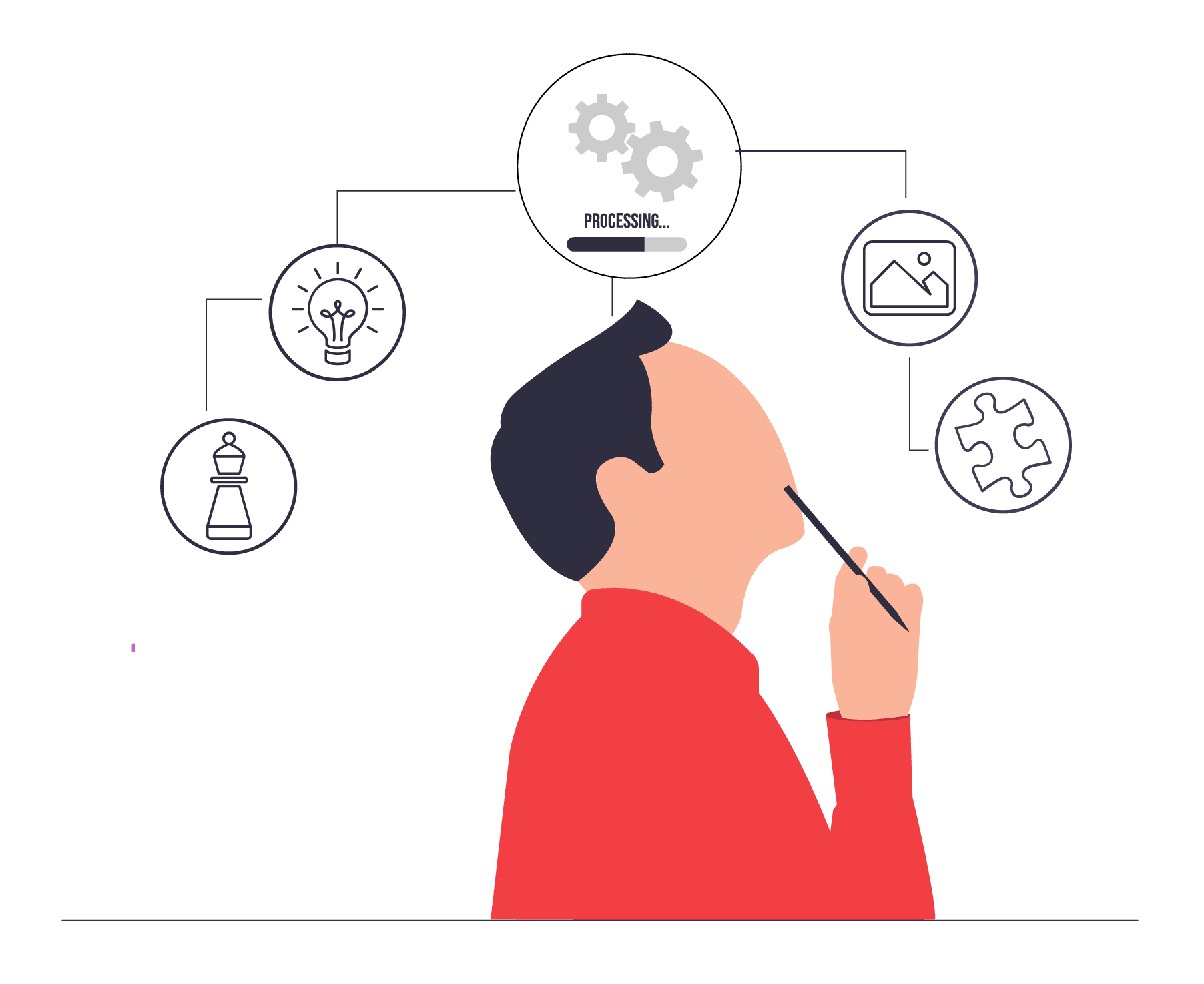Globalization is where culture, economics, and ideas blend globally. The interconnected web of trade, technology, and communication shrinks our world. As we can tell from the definition, in the age of globalization, hardly anything escapes its influence. How could the human resource industry avoid being affected?
From the perspective of Human Resources, globalization means managing diverse talent pools containing individuals from various regional and cultural backgrounds. This is primarily due to the expansion of business operations across the globe.
Effective HR practices are the key to advancing and retaining a top-fit talent pool for any organization. Here, effective human resource practices mean employee engagement, the promotion of talent development, and the development of an innovation-driven atmosphere.
Let’s dive into the sea of information step-by-step and draw conclusions about the impacts of globalization on Human Resource practices and how to sustain this scenario.
Globalization and HR management
Today because of globalization, organizations are bound to shift their mindset from local to global for broader outlooks. This shift was due to the initialisation of interconnectedness of markets, culture and economics worldwide.
From the HR perspective, adopting diversity and inclusion has been a significant breakthrough. Developing cross-cultural understanding and accommodating the needs and expectations of employees has become a vital aspect of the core HR policy.
The impacts are significant, leading organizations to formulate uniform Human Resource practices to stay ahead. Globalization requires HR strategies to match the company’s global goals. This means Human Resource management should help expand into new markets, support international teamwork, and build a unified company culture worldwide. When HR aligns with the global mindset, it directly or indirectly boosts efficiency, productivity, and competitiveness globally.
As companies grow worldwide, HR policies must adjust for diverse laws, cultures, and economies. This means customizing hiring and keeping talent, following global labor laws, and providing cross-cultural training. By adjusting HR policies to fit specific regions while staying true to company values, businesses can handle global complexities better.
Talent management in a globalized world
This section explains managing talent in the globalization age. It is a very crucial and critical aspect that shouldn’t be ignored. To effectively manage talent across borders, organizations must address several critical areas like,
Recruitment of diverse talent pools: Hiring a diverse group of people is really important for big companies that work worldwide. This means finding employees from different places, cultures, and skills.
When companies include many different kinds of people, they get many new ideas and ways of thinking. This can make the company more creative and come up with better solutions.
Cross-cultural training and development programs: Cross-cultural training programs are essential for helping employees understand and work well with people from different cultures. These programs teach about things like how people from other places communicate and behave at work.
Sometimes, they also offer language classes to help people talk to each other better. When companies provide this kind of training, it helps everyone get along better and work together more effectively.
Global mobility: When employees go to work in another country for a while, they’re called international assignees. Managing these employees and their moves involves helping them get visas, find places to live, and understand the new culture.
Sometimes, companies even offer special training to help them settle in and do well in their new jobs. When companies support these employees and their families during their time abroad, they are happier and more likely to stay with the company.
To succeed globally, companies need to do three crucial things: find many different kinds of people to work for them, teach everyone how to work together well even if they’re from different cultures, and help employees who move to other countries for work. When companies focus on these things, they build a solid and welcoming team that can do well no matter where they are in the world.
Employment law and compliance
In today’s world, HR teams deal with many different laws regarding work, especially when outsourcing HR to the Philippines. They must understand and follow these laws in each country where their company operates. These laws cover things like how long people work, how much they get paid, and their work rights. HR teams must keep up with these laws to ensure the company follows them and doesn’t get into trouble.
It is also very important to ensure that the company follows international rules about how workers should be treated. These rules are set by groups like the International Labour Organization. They state that everyone should be treated fairly and have good working conditions. HR teams need to ensure that the company’s policies follow these rules, no matter where they are.
Another big deal is being ethical in how the company treats its workers. As companies grow around the world, they need to make sure they treat everyone well and with respect. This means being fair when hiring, training, and firing people. HR teams also have to deal with tricky situations like bribery and ensure workers’ rights are respected.
- Understanding different work laws
- Following international labor rules
- Being fair and ethical in HR practices
Technology with global HR operations
HRIS helps HR teams manage employee information, such as payroll and benefits, from anywhere. This is important because companies have employees in different places. It keeps HR processes consistent and accurate.
Global teams are now familiar with people in different countries and time zones. Tools like video calls and messaging help them work together smoothly, no matter where they are. This makes teamwork more accessible and helps everyone share ideas and make decisions.
Automation and AI are also changing HR. AI can do tasks like screening resumes and scheduling interviews automatically, saving HR teams time to focus on important things. AI can also analyze data to find trends and help HR make better decisions globally.
To understand more precisely, please follow the bullet points below,
- Utilization of HRIS:
- HRIS helps manage employee information like payroll and benefits in one place.
- It ensures consistency and accuracy in HR processes across borders.
- HRIS allows for efficient management of employees spread across different locations.
- Collaboration tools:
- Video conferencing, messaging platforms, and project management software facilitate communication among global teams.
- These tools enable seamless collaboration, knowledge sharing, and decision-making regardless of geographical barriers.
- Virtual collaboration tools enhance teamwork and productivity for global teams.
- Automation and AI:
- Automation and AI streamline HR tasks like resume screening and interview scheduling.
- They free up HR professionals to focus on strategic initiatives and employee engagement.
- AI algorithms analyze large datasets to identify trends and make data-driven decisions, optimizing HR strategies in a global context.
Challenges and opportunities
Globalization brings both challenges and chances for HR practices. Let’s see how it affects HR:
- Cultural barriers and communication challenges:
- With globalization, companies meet people from different cultures and languages, which can lead to misunderstandings.
- Different ways of doing things and talking can make teamwork hard.
- HR needs to help everyone understand and respect each other’s cultures. They can do this through training and clear communication.
- Building inclusive and diverse workplaces:
- Globalization lets companies hire from everywhere, but it’s important to make sure everyone feels welcome and valued.
- HR can make policies and programs that support people from all backgrounds.
- Having diverse teams can make the company more creative and innovative.
- Globalization for talent acquisition and innovation:
- Globalization means companies can find talented people from all over the world.
- HR can use technology to find and hire these people, no matter where they are.
- Encouraging global teamwork and sharing ideas can make the company more innovative.
- Legal and compliance complexities:
- Operating in different countries means following different rules and laws, which can be complicated.
- HR needs to know and follow these rules to avoid problems.
- Making sure HR policies work everywhere while still respecting local laws is important.
Globalization brings both challenges and opportunities for HR. By helping people understand each other, promoting diversity, finding talented people worldwide, and following the rules, HR can make the most of globalization for the company.
Case studies of best practices for HRM in globalization
This section contains case studies that show how globalization affects HR practices. It also highlights how organizations are finding creative solutions to deal with these effects. Let’s find out how different organizations tackle the globalization effect with regards to Human Resource Management.
1. Google’s 20% rule
Google is famous for caring about its employees and coming up with new ways to keep them happy at work. One cool thing they do is called the “20% Time” rule. It means employees can spend one day a week working on their own projects. This helps them be more creative and happy with their jobs.
Google also gives its employees nice perks like good food, places to relax, and time off when they become parents. This makes Google a great place to work, and people feel good about their jobs there.
2. Freedom and responsibility in Netflix
Netflix has made it very simple from their side. If a person is picking up random and unavoidable trash from the office floor just like they would do at home, then that person holds the primary potential to be part of the Netflix team.
Netflix is famous for its special culture of freedom and responsibility. This means employees have the power to take charge of their work and make decisions on their own.
The company believes in trust, honesty, and being responsible for your actions. Employees can work flexibly and choose what’s most important to them.
Netflix also gives good pay and benefits, like competitive salaries and stock options, to reward hard work and encourage new ideas. By creating a culture where people feel empowered and trusted, Netflix has built a team that’s excited to work hard and help the company succeed in the competitive streaming industry.
3. Zappos Holacracy
Zappos, an online shoe and clothing store, tried something bold to get employees more involved and independent.
They used a new way of organizing called Holacracy. Instead of bosses telling everyone what to do, they split the company into small teams called “circles.” Each circle has its own jobs and can make decisions without needing approval from higher-ups. This gives employees more say in how things are done and helps them feel more connected to the company.
Even though it was tough at first, Zappos’ Holacracy experiment ended up making employees feel more empowered, work better together, and come up with new ideas.
4. Salesforce’s Ohana culture
Salesforce has a special culture called Ohana, which means family in Hawaiian. This culture is all about trust, honesty, and treating everyone fairly, including employees, customers, and the community.
Salesforce helps its employees stay happy and grow by offering things like relaxation sessions, chances to volunteer, and groups where employees can support each other.
Because Salesforce cares so much about its employees and values, lots of people like working there, and the company does really well in the tech world.
Final words
In today’s world, HR practices are super important for making companies successful. Globalization has changed the way businesses work, so HR teams need to handle lots of different things like hiring people from all over the world, understanding different cultures, and following lots of rules.
It’s essential to make everyone feel welcome and included at work by celebrating differences and being fair to everyone. Companies use technology to help people work together, no matter where they are, and make sure HR tasks like hiring and payroll are done right.
Even though globalization brings some challenges, like language barriers and complicated rules, smart companies turn them into opportunities to grow and get better. By hiring diverse teams, giving everyone a chance to learn from each other, and following the rules, companies can use globalization to build a strong and happy workforce that’s ready for anything.








